Critics say the strict regulations Italy's right-wing government imposed on private sea rescue organizations are causing more migrants to die at sea. On board a humanitarian rescue ship, InfoMigrants witnessed what it means when there are fewer crews patrolling to check whether boats are in distress.
There is sudden urgency on board the Nadir. The sailing vessel, operated by the German sea rescue organization RESQSHIP, when it receives a distress call over the radio.
"A boat with 30 people -- we’re heading there now," says Jelka Kretzschmar as she prepares a tender boat for the mission.
Half an hour later, the crew spots it in the distance: an "iron boat" -- crudely welded together by smugglers from sheets of metal. Heavy, unstable, and lethally unsafe. Kretzschmar and two other volunteers set off in the tender, while their colleague Paula Gaess monitors from the Nadir, visibly tense.
"If even a little water gets in, it could sink within seconds," Gaess warns.
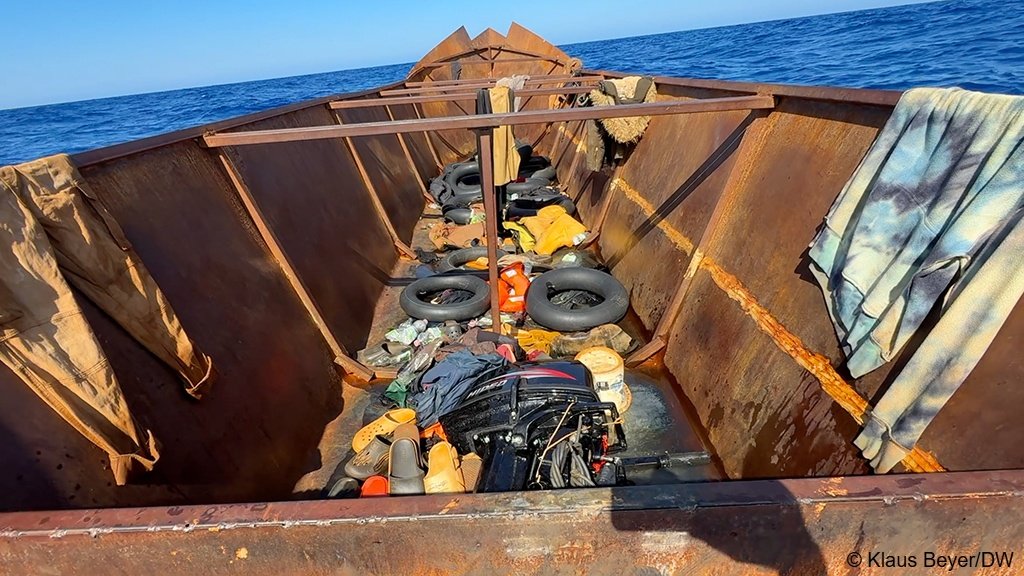
No food, no water
No one on the boat is wearing a life jacket, so the team first begins distributing them, then moves the most vulnerable to safety -- two infants and a pregnant woman. The migrants have been adrift for six days, they say, and had nearly drifted back towards Libya. They say they almost reached Lampedusa and then ran out of fuel. A young man from West Africa recounts their ordeal: a violent storm, pounding waves, no food, no water.
"Some were so desperate they jumped into the sea," he says quietly.
Some say they wanted to push the boat, but the young man from West Africa gives a different explanation: "Some people said, if people are going inside the water, an alarm signal goes on and rescue will come to help." Misinformation like this can prove deadly.
Desperate screams for help
Twenty-eight people are brought aboard the Nadir. Many require medical attention for fuel burns, including the children. These injuries occur when gasoline from the engine mixes with seawater and comes into contact with human skin. The skin begins to burn, and if not treated properly, the wounds can cause chronic pain. Extensive deep burns can even be fatal.
Read AlsoDehydration, trauma - the health risks migrants face
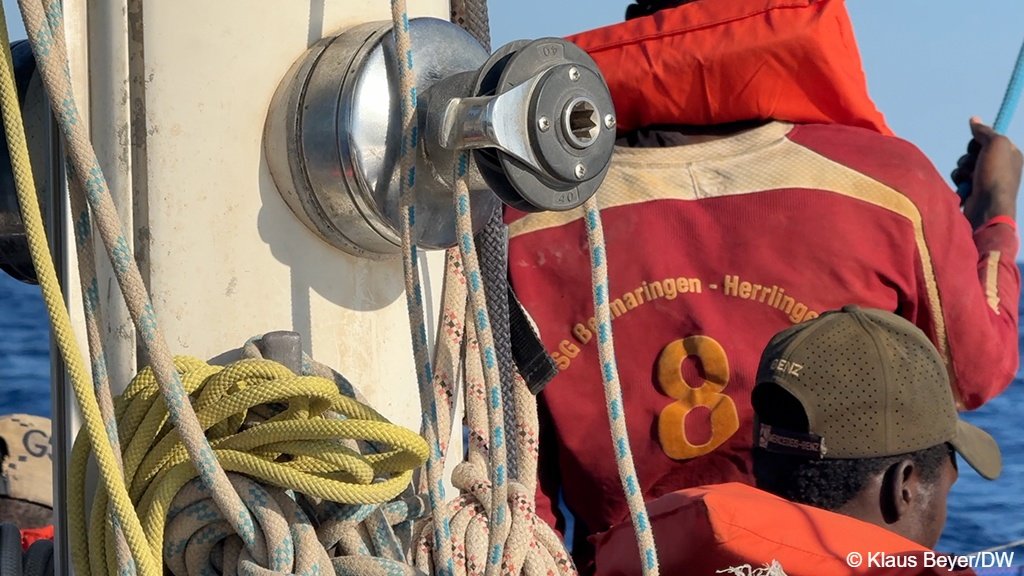
Then, half an hour into the return journey back to Lampedusa, screams pierce the air.
"Help us, we’re drowning!"
The cries come from the water -- people clinging to inflated car tire tubes. They are the same migrants from the iron boat who jumped in the water hours ago, according to the migrants already on board the Nadir.
The crew hauls twelve more people from the sea, all severely weakened, trembling with cold and exhaustion. Four remain missing. Another civilian rescue vessel joins the search, as does an NGO reconnaissance plane. But no state rescue units respond -- despite repeated radio calls from RESQSHIP’s Stefen Seyfert.
"It makes you furious," Seyfert says. "These are people in mortal danger, and nobody reacts. The only ones helping are civilians."
Read AlsoItaly: At least 27 migrants die in shipwreck off Lampedusa
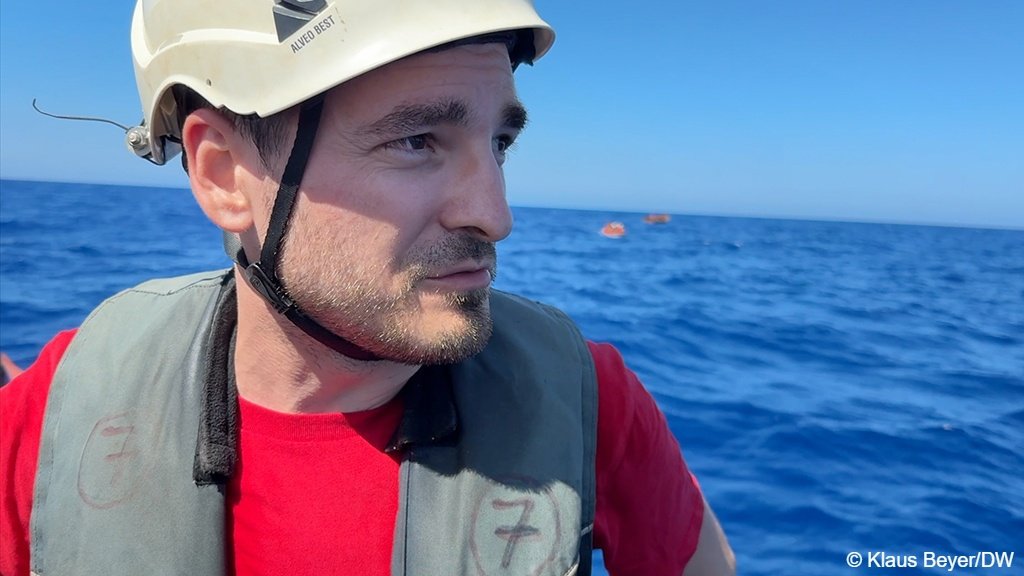
Restrictions on sea rescue NGOs
Italy’s right-wing government, led by Prime Minister Giorgia Meloni, accuses private rescue groups of encouraging migration and has continued to tighten regulations for NGOs active in search and rescue operations, which were already begun under previous governments. A law passed in March 2023 mandates that NGO ships must head directly to a designated port after a rescue, instead of conducting further rescues. The assigned ports are often far north in Italy, such as Ravenna or Ancona, which often adds days of travel and means that the NGOs are not present in the Central Mediterranean, where most distress cases occur. This, NGOs say, delays their rescue operations and prevents them from saving more lives at sea.
Failure to comply with these rules can lead to fines of up to 50,000 euros as well as temporary detention of the ships. These detention periods usually last two to three weeks.
In some cases, Italian courts have suspended or overturned the administrative detention of rescue ships. For example, in March 2024, the Sea-Eye 4 ship was detained for allegedly failing to follow Libyan coast guard directives after rescuing migrants, but a court in Reggio Calabria later ruled the 60-day detention to be unlawful, finding the accusations unsubstantiated and ordering the detention to be lifted. Despite similar cases, the laws remain in place. The Nadir, too, was barred from leaving port for three weeks before this mission.
Meloni goverment pledges to bring down migration numbers
Whether Prime Minister Meloni has achieved the hoped-for success at home with her policy to curb irregular migration is disputed. Italian government data, updated on August 18 in this is around 1,000 more than in the same period of the previous year, but significantly fewer than the more than 103,810 registered in the same period in 2023.
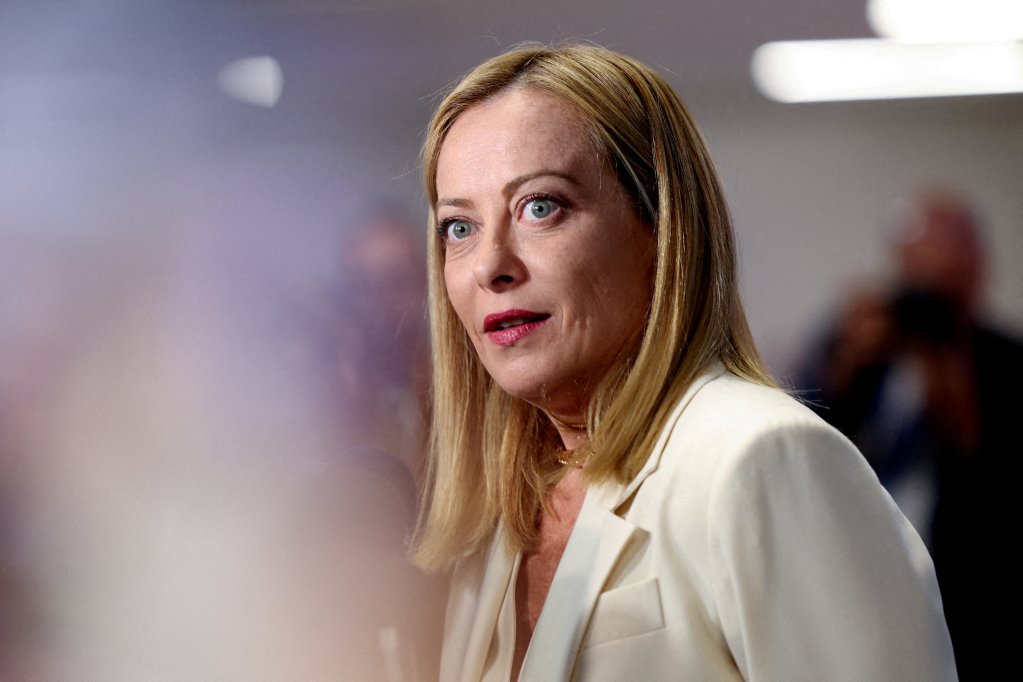
In any case, Meloni takes credit for the fact that the European Commission and an increasing number of EU member states have shown interest in Italy's migration policy -- including its deal with Albania to outsource asylum procedures to a non-EU country, a plan that has been widely criticized and faces multiple legal challenges.
In mid-June a delegation from one of the governing parties, Fratelli d'Italia (Brothers of Italy) -- led by Prime Minister Giorgia Meloni -- visited Lampedusa. The mayor Filippo Mannino, not affiliated to any political party, told them that the current government is listening to the problems and that, since they took office, things have improved in Lampedusa. He did not respond to several interview requests to clarify what he meant.
Read AlsoTop EU court questions premise of Italy's Albania migrant camp scheme
'Mediterranean no longer being monitored'
Lampedusa’s former mayor, Salvatore Martello, has however been highly critical of the government’s approach. "What the Italian government is currently doing to NGOs is something that sends shivers down your spine," Martello says. "Essentially, the Mediterranean is no longer being monitored. There are no eyes left to check whether boats are sinking, whether people are being lost, or whether there are vessels in distress. There is no one out there anymore. And how are we supposed to know what is really happening?"
Martello says there are still arrivals almost on a daily basis, but no one talks about it anymore. Usually, migrants spend only a few days in Lampedusa after arriving -- at the so-called hotspot in the center of the island -- before being transported to other parts of Italy. The hotspot resembles a prison from the outside: high metal fences, surveillance cameras, and military patrols. Journalists are not allowed to enter.
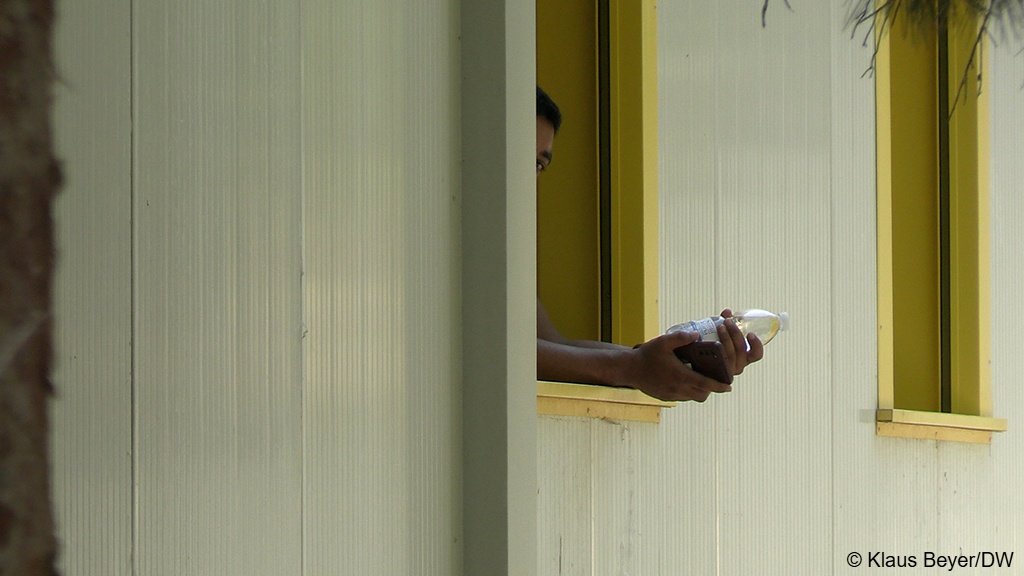
Through the fence, we speak to a group of men from Bangladesh. A 22-year-old man says they spent 24 hours at sea in rough conditions coming from Libya. "I want to work in Rome, Naples, or Milan." A friend says they left for political reasons: "Our country has big problems."
An increasing number of migrants from Bangladesh are trying to use the route to Europe via Libya, but some either choose to return home after facing difficulties in Libya, or are among the thousands of migrants who are regularly intercepted by the Libyan coast guard and returned to shore. According to IOM Libya, more than 14,000 migrants were intercepted and returned to Libya trying to cross to Europe this year (as of August 9).
Back on the Nadir, after a ten-hour voyage, the ship carrying the survivors arrives in Lampedusa. They dock next to the Aurora, another private rescue vessel operated by the NGO Sea-Watch, which is being blocked by Italian authorities because, after a rescue, it returned to Lampedusa instead of heading to the designated safe port in Trapani, much further away. "It is a system that is doing what it was designed to do: letting people drown at the borders of Europe -- silently, systematically," Sea-Watch claims.
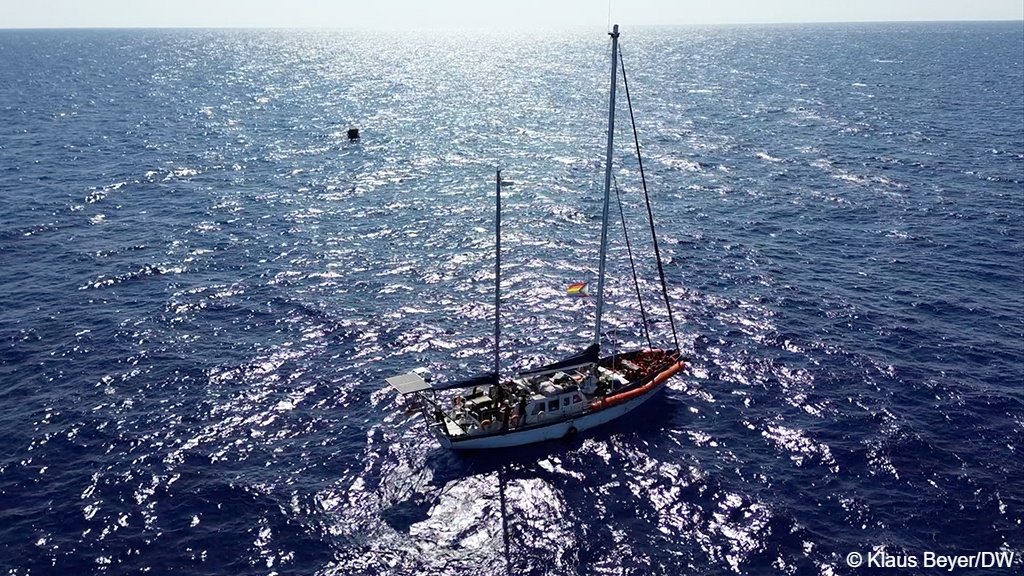
The Nadir itself had been placed under administrative detention before this rescue -- the second time in a very short period. "There is simply no political will to provide assistance," says RESQSHIP’s Stefen Seyfert. "The intention behind it is to ensure that no rescues can take place and that no one is out at sea to help." The new German government has also withdrawn funding for sea rescues in the region.
At dawn, the crew turns back toward open waters. More boats in distress have been reported. Whether anyone else will respond remains uncertain.
Read Also'Fatal signal' – German opposition parties, NGOs decry end of government funding for sea rescue
